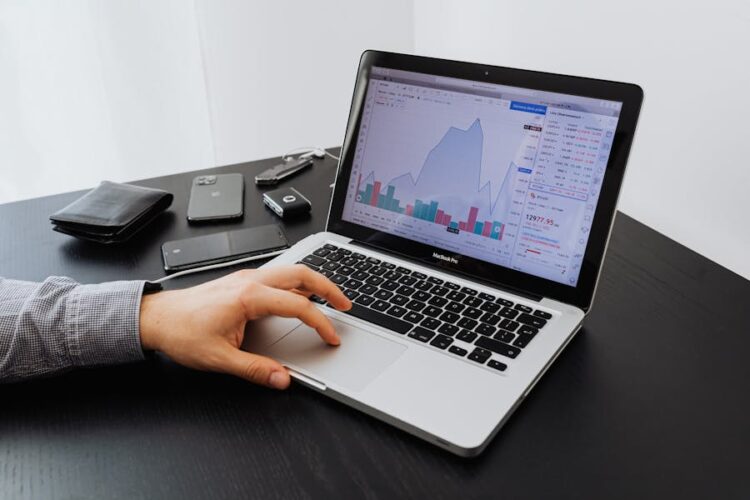Are you using your personal device for work and feeling unsure about the risks involved? Concerned about how your device might impact your data security, privacy, or even expose you to legal issues? Don’t worry—you’re not alone. Many employees face similar concerns when using personal devices for professional tasks.
This article explores the most common legal risks of using personal devices for work and offers tips on how employees can protect themselves. By understanding these risks, workers can take steps to safeguard their personal and professional information while ensuring they comply with workplace policies and legal regulations.
1. Data Security Risks
One of the biggest legal risks of using personal devices for work is the potential for data breaches. Personal devices may not be as secure as company-provided devices, which are often equipped with advanced security features like encryption and secure firewalls. If a personal device is lost, stolen, or hacked, sensitive work-related data, including client information, trade secrets, or financial records, could be exposed. This can result in financial losses, reputational damage, and potential legal consequences for both employees and employers.
To minimize the risk of data breaches, employees should ensure that their personal devices are protected with strong passwords, encryption, and multi-factor authentication. Avoid storing sensitive data on personal devices whenever possible, and use security tools such as ExpressVPN for PC which will add an extra layer of security to your online activities. If the company has a Bring Your Own Device (BYOD) policy, employees should comply with any security measures required by the employer, such as installing specific security software.
2. Violation of Privacy
Using personal devices for work can also create privacy concerns. In many cases, employees may inadvertently mix personal and professional data, making it difficult to keep both types of information separate. This is particularly problematic when dealing with confidential information or when accessing work-related accounts that contain private details about clients, customers, or colleagues.
In the event of a legal dispute or an audit, employees may be required to provide access to personal devices. If the device contains both personal and work-related data, it could lead to unintended disclosures of personal information, violating privacy laws. If employees use personal devices for work and then leave the company, there could be concerns about what personal information the employer has access to or retains.
To protect privacy, employees should make use of separate apps, cloud storage platforms like Google Cloud, or devices for personal and professional purposes. It is important to familiarize yourself with the company’s privacy policies and understand how your personal device usage is monitored or regulated by the employer.
3. Intellectual Property Risks
When using personal devices for work, employees may inadvertently expose intellectual property (IP) to theft or unauthorized sharing. This includes company documents, designs, proprietary software, and any other work-related creations that are protected by intellectual property laws. If an employee’s personal device is compromised, sensitive company IP could be leaked to competitors or the public.
Employees should be mindful of the data they store or share on their personal devices. Any company data that is downloaded or stored on a personal device could potentially be exposed to third parties if the device is not secure.
To mitigate these risks, employees should avoid storing company IP on personal devices and should always use secure channels like Tresorit for sharing files. When working with sensitive information, it’s important to follow company protocols for data handling and use company devices when possible.
4. Workplace Liability
When employees use personal devices for work purposes, the employer may be exposed to legal liabilities. For example, if an employee engages in inappropriate behavior (such as harassment or discrimination) through work-related apps or email on their personal device, the employer could be held responsible for those actions, even if the device itself is personal.
In some cases, employees may unintentionally breach company policies or regulatory guidelines by using personal devices. This could include using unapproved apps, accessing certain websites, or handling sensitive data in ways that violate industry standards. If this occurs, the company could face legal actions, including fines, penalties, or lawsuits.
To minimize these risks, employees should adhere to the company’s policies regarding acceptable use of personal devices and ensure they understand the consequences of violating workplace regulations. Employers can help by providing clear guidelines and training on appropriate device use and security practices.
5. Legal Implications of BYOD Policies
Many companies have adopted Bring Your Own Device (BYOD) policies, which allow employees to use their personal devices for work purposes. While these policies offer convenience, they also come with legal considerations. BYOD policies can raise questions about who owns the data stored on personal devices, who is responsible for securing the device, and how the device will be monitored by the employer.
In some cases, employees may not fully understand the terms of the BYOD policy and could unknowingly violate it. For instance, they may download unauthorized apps or fail to properly secure their devices, leaving the company vulnerable to cybersecurity breaches. In the event of a legal dispute, questions about ownership of work-related data and access to personal information may also arise.
Employees should familiarize themselves with the company’s BYOD policy, understand the security measures required, and ensure that they are following all guidelines for device usage. Besides that, workers should be aware of how their personal data may be accessed or monitored by the employer and understand their rights under privacy laws.
Using personal devices for work can offer convenience and flexibility, but it also comes with significant legal risks. Employees must be aware of the potential dangers, including data security breaches, privacy violations, intellectual property theft, and workplace liabilities. To minimize these risks, it is crucial to follow company policies, secure personal devices, and understand the legal implications of using personal technology for professional tasks.
By taking proactive steps to protect sensitive data and adhering to workplace regulations, employees can safeguard themselves and their employers from legal trouble. Employees should always be informed of their rights and responsibilities when it comes to using personal devices for work and should seek guidance from their employers if they have any questions or concerns about the legal risks involved.










